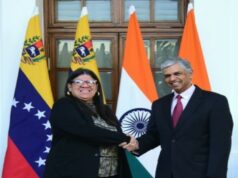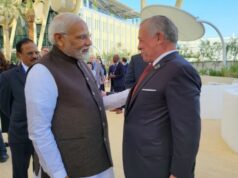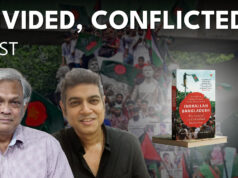As India mourns the Pahalgam terror attack, Iran is watching. Not with judgment, but with concern — and an offer.
In a volatile region where geopolitics and extremism often go hand in hand, India and Iran find themselves facing a common threat: terrorism, state-sponsored or otherwise. The recent attack on tourists in Pahalgam has reignited long-standing fears about cross-border militancy and its silent backers. Meanwhile, Iran continues to deal with the fallout of similar forces operating near its own restive borders.
In this fraught moment, Professor Seyed Emamian — an influential academic and key voice in Iran’s foreign policy circles — speaks exclusively to StratNews Global about why India matters more than ever in the regional equation.
He lays out Tehran’s view of the Chabahar port as not just a trade hub but a strategic stabilizer, and why Iran believes India must “step up, not step back” in the face of American pressure and regional chaos.
Prof Emamian doesn’t mince words. He speaks frankly about Pakistan’s role in fomenting instability, the hypocrisy of US sanctions, and Iran’s deepening frustration with India’s “overcautious” diplomacy. But this isn’t just critique — it’s a call to action. A roadmap for how India and Iran, both victims of terrorism, can rewrite the rules of regional engagement.
He also hints at something deeper: the risk that if India retreats, others — less friendly, more transactional — will fill the vacuum.
Watch the full interview to get a rare, unfiltered view from Tehran—on why India matters to Iran, how Chabahar fits into broader strategic thinking, and what the world might look like if the global South begins to speak in one voice.
In a career spanning three decades and counting, Ramananda (Ram to his friends) has been the foreign editor of The Telegraph, Outlook Magazine and the New Indian Express. He helped set up rediff.com’s editorial operations in San Jose and New York, helmed sify.com, and was the founder editor of India.com.
His work has featured in national and international publications like the Al Jazeera Centre for Studies, Global Times and Ashahi Shimbun. But his one constant over all these years, he says, has been the attempt to understand rising India’s place in the world.
He can rustle up a mean salad, his oil-less pepper chicken is to die for, and all it takes is some beer and rhythm and blues to rock his soul.
Talk to him about foreign and strategic affairs, media, South Asia, China, and of course India.




